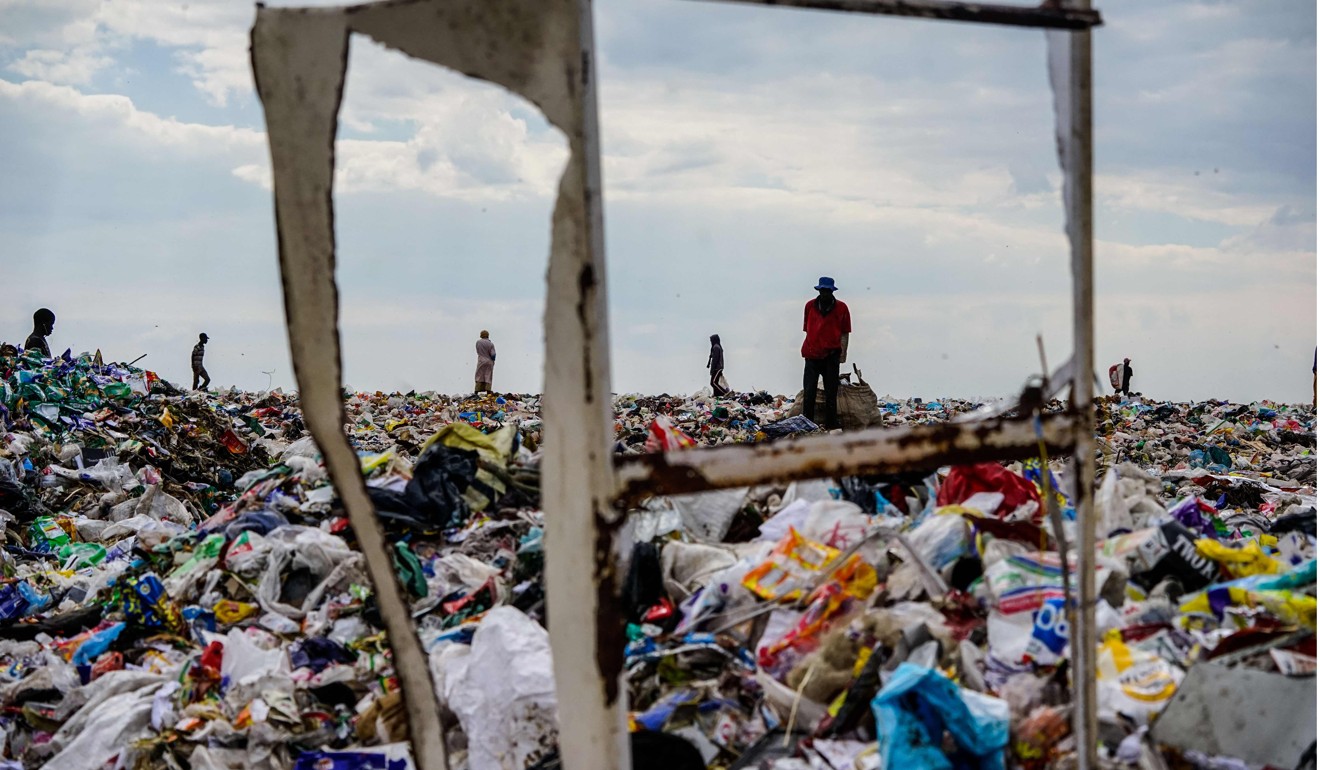
The ultimate guide to going plastic-free in July in Hong Kong
Two million people around the world will try to reduce their plastic waste in July and You can do your bit to help. Join community activities, workshops and screenings of documentaries in your country to stop plastic going to landfills
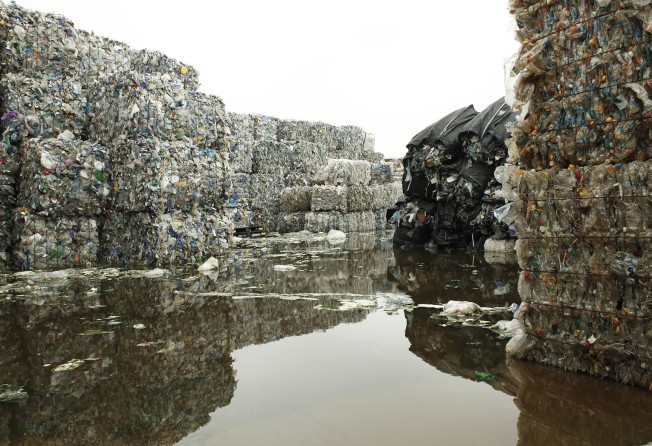
The world is in the depths of a plastic crisis: ineffectiveness in recycling systems has been thrown into the spotlight after China announced this year it would no longer accept other countries’ rubbish. But the problem has been piling up for some time. It’s cheaper to manufacture a new bottle than create one from recycled plastic.
The developed world is reliant on single-use items, like straws, carrier bags and coffee cups, which are used for only a few moments before being discarded and ending up in landfills or, in instances of poor waste management, the stomachs of sea creatures.

Plastic Free July, an initiative that originated in Australia in 2011, has grown into a global movement of eco-conscious citizens who recognise their individual responsibility in tackling plastic.
This year, more than two million people from 159 countries will strive to reduce their plastic waste output for a month, sharing their progress using #ChoosetoRefuse and #PlasticFreeJuly.
There isn’t a specific Hong Kong arm of the campaign, but that shouldn’t deter those who want to try reducing their plastic for a month. Here are eight steps to success in your Plastic Free July that will make a tangible difference to the city.
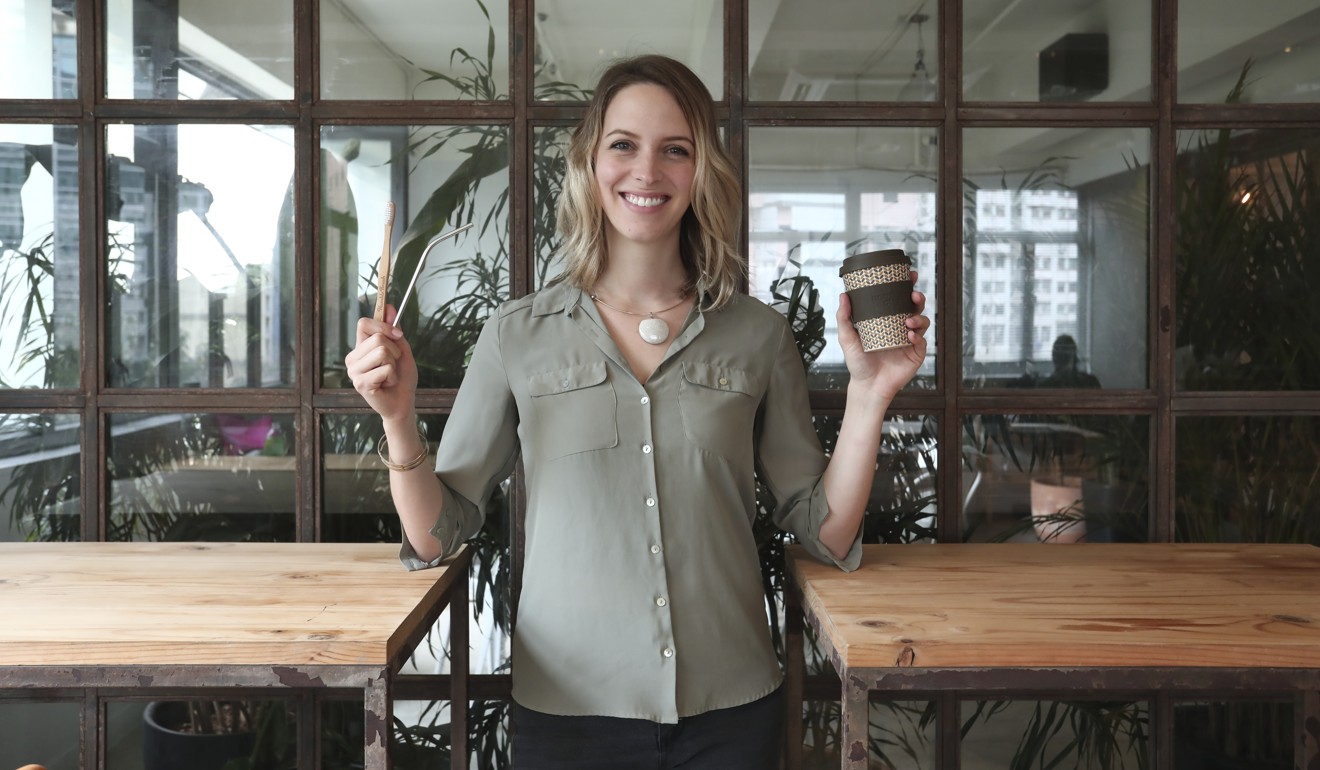
1. Invest in the essentials
Start your Plastic Free July with all the tools to avoid waste. Carry a set of cutlery, a washable napkin and a bamboo, glass or metal straw in a small zip-up pouch, along with a spare shopping bag, a drinks bottle and a sealable box.
These items result in an instant 80 per cent reduction in personal plastic waste and help you say ‘no’ to plastic bags in supermarkets (even the clear produce and dairy ones), straws and disposable tableware in restaurants and bars. Now! No Waste and Plastic-Free HK sell sustainable products shipped in plastic-free packaging.
2. Plan ahead
Think about what you’ll need for activities, whether it’s grocery shopping, eating lunch in the office, going to the gym, having a picnic, or visiting a restaurant. Preparing meals to bring into work is ideal, but if you don’t have time, check if your favourite lunch spot will do away with plastic utensils or packaging.
Check out local blogs such as Zero Waste Hong Kong, Green Queen and Our Simple Cottage to see how Hong Kong’s waste-dodging pioneers do it. Fill your Instagram feed with inspiring local zero waste influencers, such as The Zero Waste Challenge, Garbage Activist and Plastic Free Foodie.
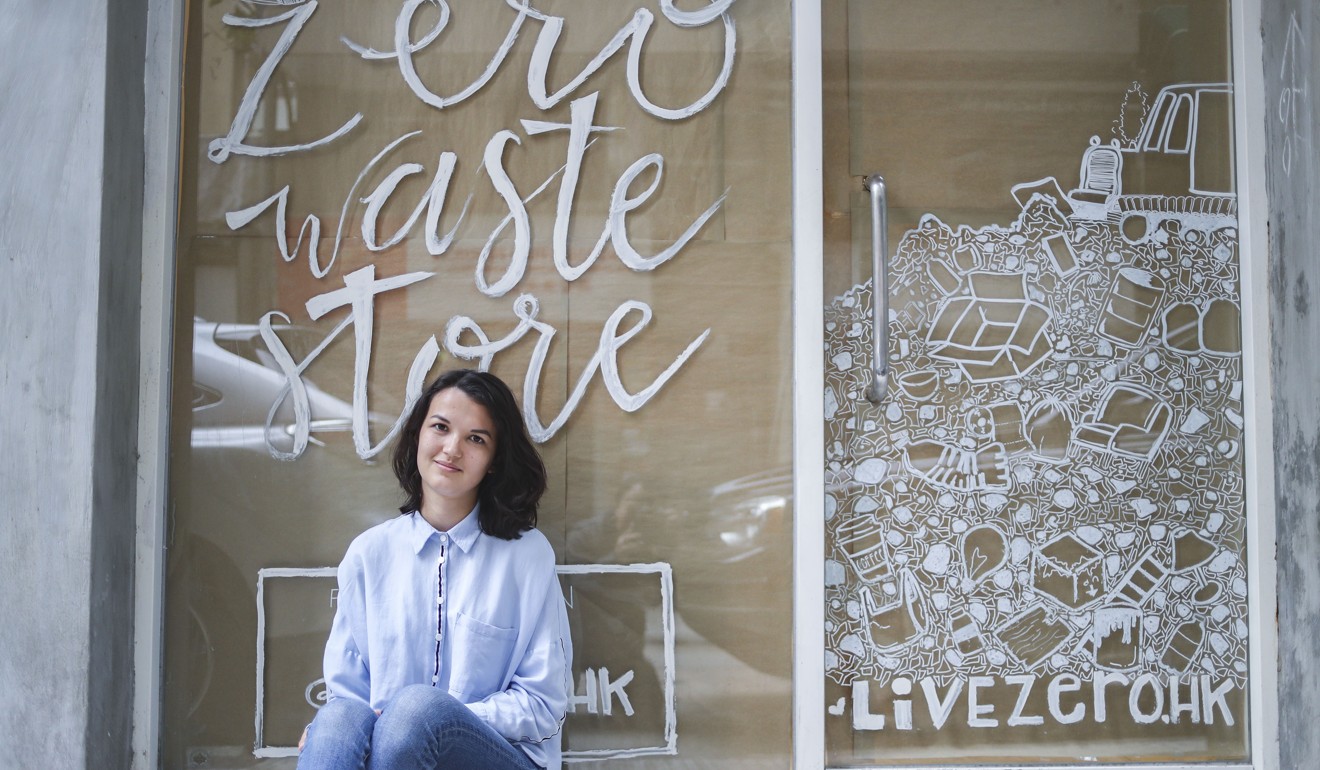
Not always an easy feat in Hong Kong, but savvy shoppers can find a variety of groceries with little to no plastic packaging. The city has an abundance of wet markets and several farmer’s markets, which are no-brainers for fresh, unpackaged fruit, vegetables and meat.
Graham Street market, in Central, has stalls that sell dried foods, like nuts and soybeans, in bulk. Ranges of dry goods such as pasta, lentils, quinoa and coffee can be found alongside cosmetics, cleaning products and zero-waste lifestyle items and gifts at Live Zero in Sai Ying Pun, Edgar in Tsim Sha Tsui and Seed in Sai Kung. Customers in these outlets can use their own containers. Bulk herbs and spices (plastic free on request) can be found online from local supplier Regency Spices.
4. Dump the packaging
Not everyone in Hong Kong has the luxury of living near a wet market or bulk buy shop, but this shouldn’t mean that plastic-wrapped goods found in supermarkets are acceptable.
If you buy anything at supermarkets that comes wrapped in plastic, remove the packaging and leave it at the checkout, taking your items home in reusable bags.
If enough people “trash the checkout”, supermarkets will finally get the message that customers want unpackaged goods or eco-friendly alternatives. Demonstrators at the recent Plastic Attack even went as far as to decant rice from its plastic packet into a reusable tub.
The impact from this action is magnified if you share photos of the accumulated plastic waste on social media to encourage others to do the same.
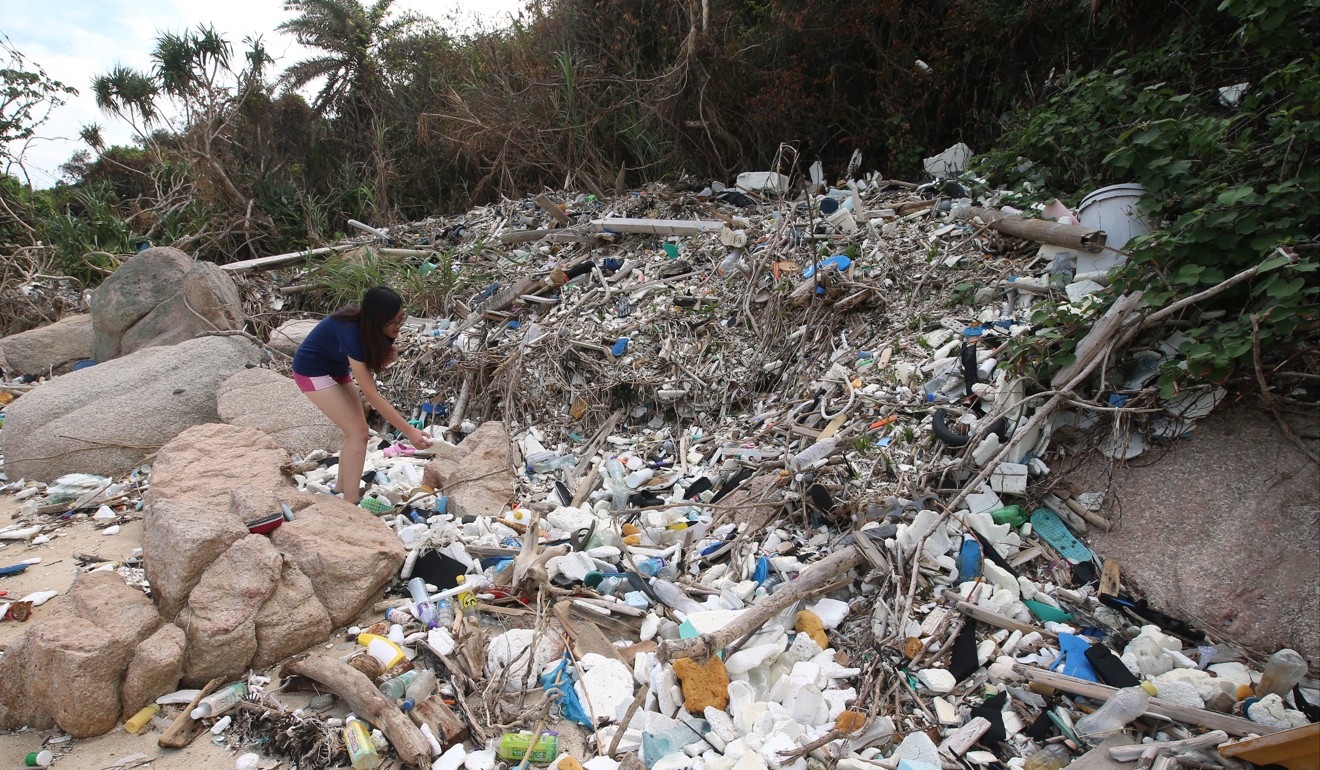
5. Join a community
Being waste conscious in Hong Kong can feel like a solitary crusade – unless you meet with like-minded individuals in a movement that’s growing all the time. The Environmental Protection Department’s Clean Shorelines initiative has several beach clean-up and waste education events planned for July.
Look out for more events from local community groups, such as Green Sustainable Living Hong Kong and Waste Free Hong Kong, while the Jane Goodall Institute hosts regular workshops and talks around the waste reduction and protecting the environment.
Go Green! Ma Wan!, a new initiative on Park Island, will be launched at a family-friendly beach clean-up and art workshop on July 22, hosted by local restaurant Cafe Roma and environmental awareness NGO Eco Marine. Join the team helping rid Lantau’s Shui Hau mangrove forest of plastic waste to protect local buffalo on July 20 at an event organised by the Lantau Buffalo Association.

Visited a restaurant that’s still using plastic straws? Disappointed that your favourite coffee shop is serving drinks in disposable cups for sit-in customers? Many establishments have already moved to reduce their single-use plastic output, but others won’t act without pressure from consumers. Raise the issue there and then, or get in touch with business via Facebook, phone or email to lay out the argument against plastic.
Facebook group A Letter a Day to Keep the Plastic Away was created for people to share their interactions with businesses and offer tips to others on how to do the same. Widespread action on plastic in the city will only stem from thorough new laws that restrict single-use plastics and hold polluters accountable.
Government legislation can get in the way of restaurants with certain licences using reusable tableware, which is why it’s equally important to get in touch with your local councillor or the Food and Environmental Hygiene Department ([email protected]) or the Environmental Protection Department ([email protected]) to demand both changes to outdated regulations and the introduction of more stringent legislation around waste.
Aim to send one message to a business and another to a government department this month.
7. Get crafty
A key part of the zero-waste movement is learning how to make your own cleaning and cosmetic products using less plastic (or none at all) compared to the commercial, shop-bought equivalent.
Popular projects include making DIY beeswax wrap (a substitute for cling film) washing up liquid, deodorant, moisture trap boxes, and many more. Lively Life in Wan Chai – “an organic and fair trade mini mart” – has several DIY workshops in July, where participants can learn to make their own beeswax wrap, incense, mosquito repellent or make-up.
8. Educate yourself
It’s much easier to value the small acts you take to reduce waste when you understand the impact of an individual consumer. Make July the month you get clued up on all things plastic.
Hard-hitting documentary Plastic China will be screened on July 14 and 29 in Yau Ma Tei, while Plastic Ocean (Netflix), and The Plastic Age (Vice, via YouTube) will help to understand the scope and complexity of the problem worldwide.
WWF Hong Kong will hold a Sea for Future exhibition, raising awareness of marine waste and conservation efforts using VR and AR technology between July 13 and 22.
Local start-up Zero Waste Life will host a four-hour Zero Waste Bootcamp on July 21 at Garage Society in Sheung Wan, where the syllabus will include information about the different types of plastics, how to find sustainable alternatives to everyday items, how to complete a packaging-free grocery shop, how to make home-made cleaning solutions and body care products, and – the “million dollar question”, as Zero Waste Life says – where to find good zero-waste make-up.
On the same Saturday, the Royal Institute of Chartered Surveyors will lead a tour of waste processing facilities EcoPark and WEEE Park in Tuen Mun to help visitors understand how well-managed waste can be turned into new resources.
9. Be Ambitious
It’s too easy to write off Hong Kong as a lost cause when it comes to plastic waste. But the movement is growing in the city and the tide will only turn on plastic waste if enough people take action and demand change. Setting realistic goals and staying positive through setbacks will help us see the challenge through. Vote with your money, use your voice, and #ChoosetoRefuse this July – and beyond.